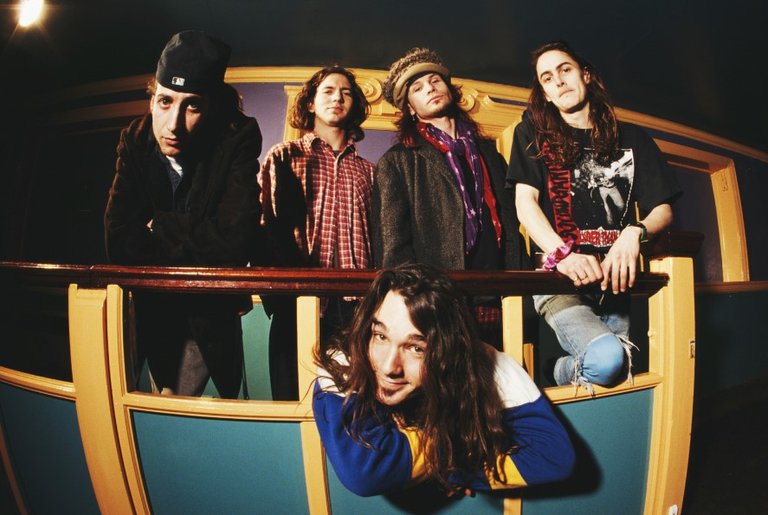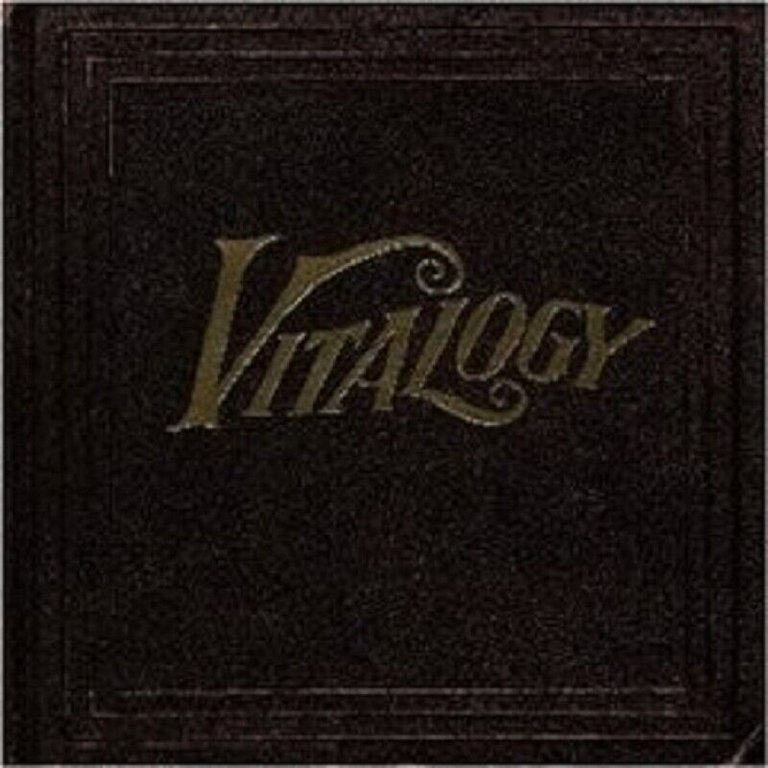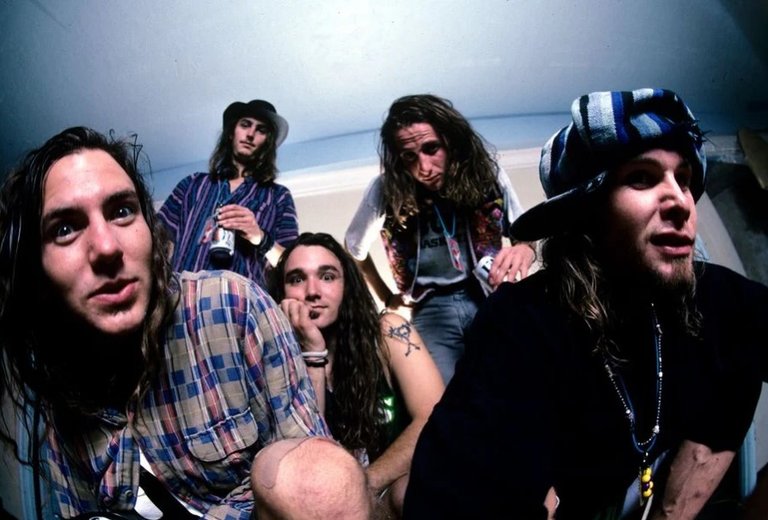Smells like Powder Vapor: How Pearl Jam once saved the life of Rock

It's been years and years since rock music was still important and had great relevance. Artists were not pop bunnies who sang with computer voices, but stars with guitars, poets, explainers of the world.
Today it is time to remember the Pearl Jam album "Vitalogy" 30 years ago, when Eddie Vedder and Pearl Jam became the last defenders of the true values of rock'n'roll.
Kurt Cobain had just died, by his own hand. Pearl Jam released a new record that they called "Vitalogy". For the first time there was an advertising campaign, giant posters, advertisements. Pre-orders were piling up in the record stores and there was even a Pearl Jam hotline: all the breaking news day and night." straight from Seattle.
What is part of the normal promotional tools for every other band in the superstar category can confidently be considered a sensation for singer Eddie Vedder and his colleagues.
The band from Seattle, which emerged four years ago from the remains of the band Mother Love Bone, which broke up after the drug death of their singer and was celebrated as one of the pioneering bands of the so-called grunge wave after their debut album "Ten", which sold seven million copies worldwide, has been refusing to do so ever since for a long time, all the usual rules of the pop music market.

Where other groups fight every day to sell just one more copy of their new record, Pearl Jam boycotts themselves as best they can. There were hardly any interviews about "Vs.", their second record, and they hid in photos Frontman Eddie Vedder behind a sad-looking rubber mask. Pearl Jam didn't make a promotional video and forced their record company to give the first single from "Vs." in the UK to include a free bonus CD. Despite new record sales, "Daughter" no longer met the conditions to appear in the official British sales charts.
In the USA, the five uprights took on “Ticketmaster”, the monopolist on the US concert ticket market. Ticketmaster is artificially driving up the prices for concert tickets, criticized guitarist and band founder Stone Gossard at a hearing before the Antitrust Committee of the US Department of Justice. The reaction was immediate: the live music multinational imposed a boycott against the unwelcome critics, and Pearl Jam had to cancel their current US tour early.
In the third year after the thunderous musical big bang, which catapulted groups like Nirvana, Soundgarden and Pearl Jam into the pop star sky with rough songs like "Smells like Teen Spirit" (Nirvana) and emphatic anthems like "Ten" (Pearl Jam) and one As a new fashion wave called “Grunge” has made its way into mail order catalogs, frustration is gnawing at the heroes of “Generation X”.
“The industry has eaten up our ideas,” says PJ singer Vedder, describing his feelings in “Rolling Stone.” Flannel shirts, oversized shirts and scruffy jeans have become a common trend. Pearl Jam, who would actually have been happy "if we could have made a living from music", sold "Vs." more than twelve million copies - more than any other rock group in the same period.
At the height of his fame, Vedder, a boyish-looking young man who, before Pearl Jam, made a living as a laborer at rock concerts and also sang in a troupe called "Bad Radio", considered giving it all up. No more records, none Tours, no interviews. "I'll just sit at home, record my songs on cassettes and sell the things over the garden fence," he told the "Musikexpress". However, Nirvana singer Kurt Cobain changed everything. More soulmate than friend, shoots himself in his Seattle home.

A shot that resonates on "Vitalogy": From the opener "Last Exit" to the single "Spin The Black Circle" to the quiet "Immortality", Cobain's act of desperation runs like a red thread through the album. “If someone can no longer control their life, then they at least want to control their death,” Vedder sings after the dead Cobain in “Last Exit,” because “some die to live” (“Immortality”).
The Nirvana singer's act of desperation runs like a common thread through the 14 angular, sometimes even experimental pieces: "Why are you leaving me alone in this hell?" screams Vedder in the central piece "Corduroy". All that remains from the total exit is one song called "Not For You": "If you hate something, then just don't do it again." They don't. No more pressure, no more flirting with a loser image that has long since become imaginary.
Vedder puts his doubts about his own role to music and apparently doesn't give a damn whether others will dismiss it as "a sense of mission." Pearl Jam takes a militant stance against the media and the public, "who deprive people like Kurt of the opportunity to live their own lives": "We only make music, and they send me a laundry basket full of their problems every day. But I'm not one Savior. I can't help them. I can barely handle myself!"
The four upright guys respond with the cabaret “Bugs” to Beck's "Loser", with "Aye Davanita" and "Hey Foxymmophandlemama" they even venture into Pink Floyd territory. "Vitalogy" is - nomen est omen - a commitment to life despite all self-doubt. Pearl Jam are trying harder than ever to take away any mass appeal from their music. Instead of soulful hymns like "Jeremy" and "Alive" there is coarse garage rock, mixed with pro-abortion verses ("Whipping") and against media ("Satan's Bed"). "Vitalogy" is no longer fun music, but a kind of swansong for the much-hyped Generation X". For Vedder, it's logical: "A generation that makes people like Kurt or me their mouthpiece must be stupid."